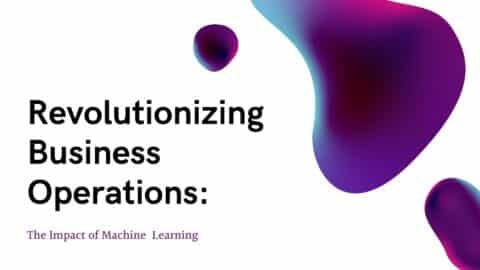Blockchain Technology’s Implications for Logistics Industry
Blockchain technology definition is that it is a distributed data recording technology that allows for the monitoring of transactions to be done in an encrypted manner. It is not a database, however, because it is difficult to edit or remove the information that has been entered. This technique keeps the blocks included inside stored data by linking them using chain-like data encryption and transferring this decentralized chain with other parties, as opposed to traditional data storage methods.
Table of Contents
What is blockchain technology?
This type of mechanism is recorded by computers and propagated democratically, so there is no need for a centralized body to oversee it. Participants must acknowledge them. The greater the number of computer systems that take part in this system, the more trust it will get. In this article, we will look at what is a blockchain technology for logistics and what blockchain technology definition would mean for future supply chains.
The Implications of Blockchain Technology for the Logistics Industry
In the logistics sector, there are a variety of courier dispatch or supply chain software options to choose from. This software can take use of blockchain technology in a variety of ways, allowing them to continually develop. The application of blockchain technology in the logistics business brings to light the notion of “smart contracts,” which have the potential to minimize the amount of paperwork and its associated costs.
#1: Managing Storage Facilities Using Tracking Technology
It is possible that blockchain technology is ideal for courier firms and storages to facilitate contact between end-user companies, containers, and carriers. By maintaining records throughout the whole supply chain process, a Blockchain-based courier tracking system may build an immutable distributed data network, making it significantly easier to reveal that information to all necessary authorities saving time and money.
Although many businesses claim to be technologically advanced, it may take as many as 30 organizations to complete a single load or transportation, and these companies must interact with one another in a more manual manner than in previous generations. These contacts and operational tasks result in a significant increase in expenditure and wasted time. Advanced courier software applications can handle high volumes of transports and the management of storage space. As a result, logistics businesses may reduce their spending on suppliers, labor, and transaction expenses while increasing their profits.
#2: Automation For All Kind of Businesses
Even today, old-school logistics organizations require an accurate transformation, notably in automation applications. Several technological advancements can benefit courier firms, but it is also necessary to establish a foundation in order for it to become an industry standard.
Spreading courier logistics software programs, making them affordable to the public, increasing trust in open source courier software, while making them more secure through software development, and expanding the habit of using such software can all help to accomplish this goal.
For the development of an integrated transport automation system, artificial intelligence is the most important factor to consider. The robots, who will eventually replace people as the automated labor, are the most heated debate on this issue, but we still have a long way to go before we reach that point. For the time being, we can make do with “functional artificial intelligence.” As a result, the logistics sector must first understand how to benefit from blockchain technology definition for your business before viewing it as a potential threat.
#3: The Data Is the Most Important Thing
In addition, the accurate assessment of a large volume of supply chain data created in the logistics industry is a vital component of future success. The corresponding data is extremely valuable, and the effective application of such data will determine the future of the logistics companies.
At this point, machine learning will play a significant role, and vision holders such as businesses that use courier dispatch software systems, developers of these applications, and members of the industry who advocate for the development of courier software will construct the future themselves.
Supply Chain using Blockchain Technology to Ensure the Security of Goods
Counterfeiting is one of the most significant difficulties that the supply chain business has in today’s global digital economy. This problem affects both luxury goods and pharmaceutical items, as well as everyday consumer goods that circulate around the world.
What is blockchain technology definition for security?
Anti-counterfeiting systems that use NFC technology are among the solutions being developed to address the widespread concerns about product counterfeiting in various supply chain systems. When it comes to developing a new contemporary, decentralized, trustable, credible, and safe supply chain development against counterfeiting dangers, Blockchain Technology (or even other Distributed Ledger Technologies constructed on decentralized networks) stood out as a promising framework.
Improved Data Integrity in the Supply Chain
Anti-counterfeiting solutions involving both on-chain and off-chain data operations can help supply chain anti-counterfeiting solutions. This approach includes blockchain technology.
To secure data security and safeguard decentralized systems from potential assaults, on-chain and off-chain storage and verification mechanisms will work at best.
Any change to product data demands both on-chain and off-chain validations, with the resulting transfer verifications by other blockchain nodes on the same blockchain network. For transition of product records, these verification stages of the product record must now include the signature generation and signing processes. As well as the access control modules that are available to users for successful verification.
Wrapping Up
The blockchain technology provides many important advantages over traditional management methods, including:
- Network decentralization means that there is no one data owner.
- Data transparency; Data transparency is the ability for anybody to track anything.
- Increased process acceleration; less reliance on manual approvals – more efficient workflow.
- Cost reduction by the use of a universal solution.
After weighing the advantages and disadvantages, this technology has the potential to make a significant impact on supply chain management. It is up to the present participants to apply it and make an investment in the further growth of this market sector. For logistics organizations to be successful, it is essential that they educate themselves before digitizing, standardizing, and cleansing their data. Because of implementing this industry-wide standard, organizations will create an ecosystem of supply chain partners. With that, they will apply the standard in a shared blockchain technology environment. Although the shipping and logistics business has been here for long, it is an excellent area to be among the first to use blockchain technology.
Writing, researching, and learning about project management and tech.










